Exploring human possibilities in extreme conditions
Interview with Christian Clot

Talking to Christian Clot is almost a miracle. His obsession?
Evolving in extreme environments, confronting so-called "borderline" situations to understand the adaptation mechanisms of the individual to hostile environments. For twenty years, he has braved the elements to understand better human nature and its ability to cope with major crises and changes. Let’s explore.
Sustainability Mag: To your credit, you achieved a world first by crossing the four most hostile environments. More recently, you locked yourself in a cave for 40 days with about fifteen volunteers. Why this search for the extreme?
Christian Clot: For many years I have been leading various and varied expeditions in extreme conditions, pushing humans to their most distant entrenchments. The big question that concerns me is: what makes a human able or unable to cope with complex and new conditions? What does managing crises mean for the brain individually and in a group?
It is difficult to shed light on this subject because most explorers do not document these moments of difficulty to which they are subjected. Instead, they reconstruct the story only a posteriori with the approximations of their memory. Existing methods for understanding adaptation to crises are thus only based on Retex systems, i.e. memorial accounts of experience feedback. They fundamentally lack precise information on how the individual experienced the complex situation. That is why, starting in 2005, I wanted to set up studies that would make it possible to establish much more direct documentation. In 2014, I created the Human Adaptation Institute, which allows us to carry out further research based on body physiology and neurocognition.
Therefore, we use expeditions as laboratory support to study people subjected to crises - groups or me -because the journeys obviously mean highly complex conditions. The study takes place before, during and after the person is faced with an extreme situation. This makes it possible to follow a human's entire cognitive transformation when confronted with a change.
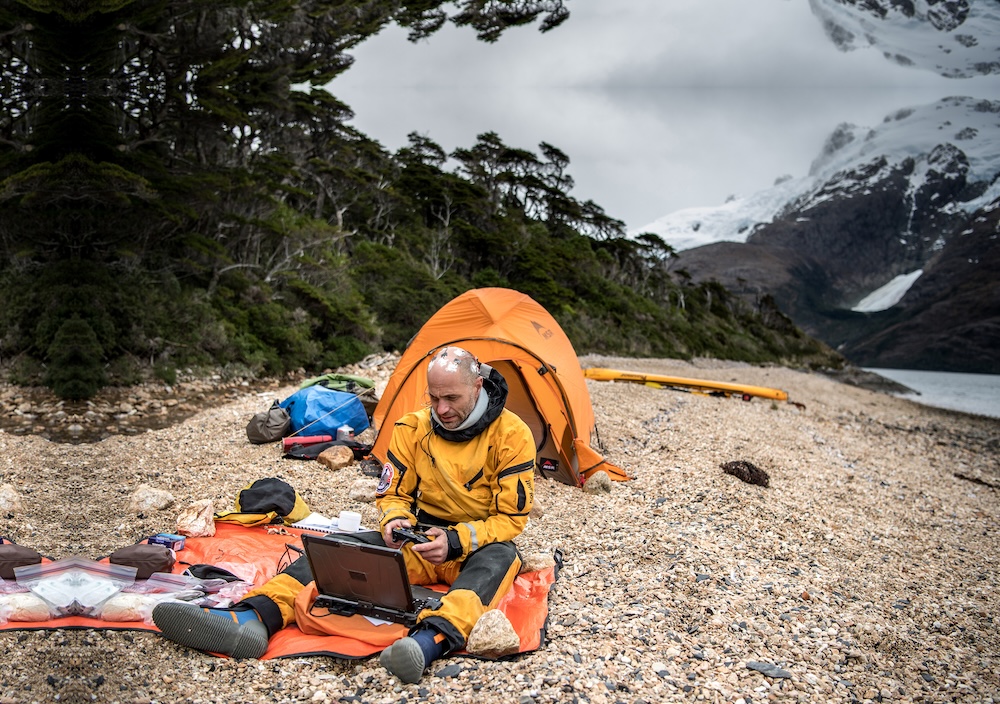
Where does your title of explorer-researcher come from?
Well, I hold on to it because I think it is essential to go back to the basics of research today. Research must go through exploration, through the quest to understand universes that we know little or nothing about.
Exploration is not only territorial. It concedes that we do not know everything and must continue to increase our knowledge, especially in areas where we often hear that we have seen everything and that there is nothing more to discover. The brain is a universe in itself, and the idea is to enter this world like Magellan, who left on his boat without knowing where he was going but who, one day, discovered the Pacific.
What do you measure in the human brain?
We try to understand everything a person experiences when confronted with a hostile environment.
Human beings are, above all, a natural element with microbiota, neurons, synapses, sensorialities, and emotions. We measure this data through capsules that are swallowed to identify the core temperature, actimetry systems to observe movements or even cardiac and encephalographic monitoring systems.
The other human characteristic is the ability to live in a group. Here, we seek to understand how the group sets up a functional organisational system that is able to respond to new conditions.
Finally, and this is a constantly forgotten point, it is vital to understand the ecological environment, its technical characteristics, temperature, humidity, pressure and potentially the gaseous exchanges between different living units. This environment in which humans are immersed in has a very significant impact.
We aim to decipher all these parameters to understand why and how humans will or will not implement a transformation mechanism.
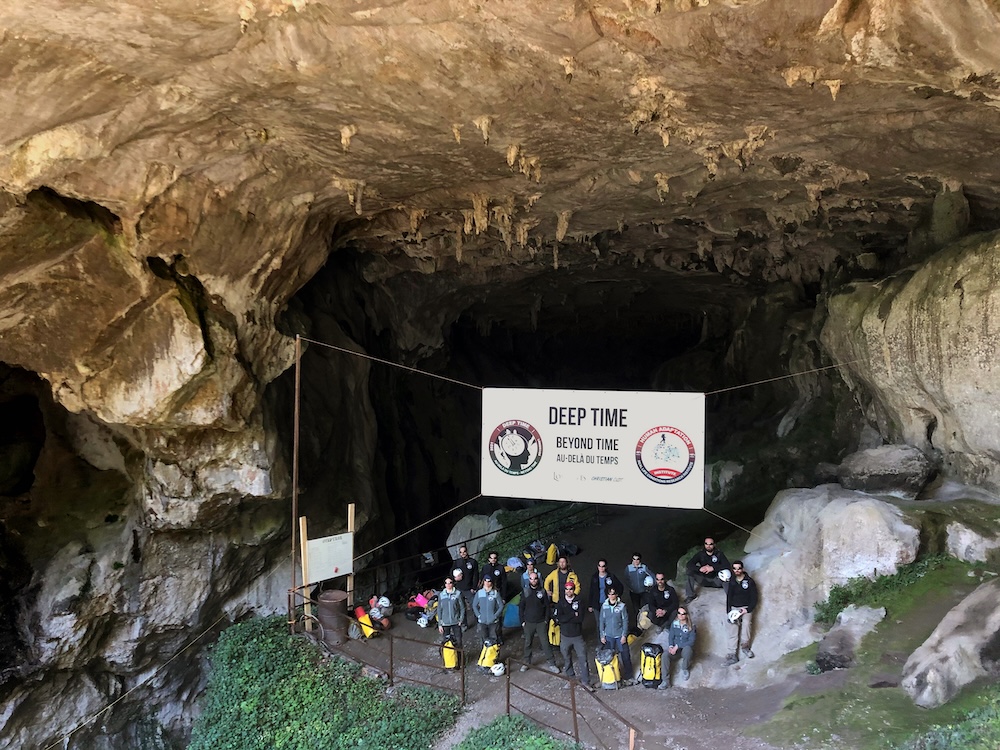
How does the brain transform in an extreme situation? Is there a significant before-and-after?
Yes, very clearly. Over forty days, which corresponds to our work period today, we see cerebral plasticity being implemented.
This is one of the stronger results that emerged from the "Deeptime" experiment. On average, over the fifteen individuals observed, 8.8% of the grey mass of the brain was modified. It is a dynamic mass that returns to its initial state sometime later. It is an extraordinary fluctuating biological phenomenon. Other mass parts will change permanently; this is a subject that we are studying closely and will publish the results in the future.
To respond to complex situations, the brain must make choices. When the individual is subject to temporal anomy, for example, the brain has to work a lot to solve the problem. It then gives up certain functions, such as short-term memory, to prioritise other mental projections or gesture functions, for example. Thus, we observe a decrease in mass in some functional areas that are considered perhaps a little less important for the situation and, conversely, an increase in the more specific areas solicited.
These neuronal generations and destructions are not done without an energy cost. Faced with situations of substantial change, the brain is often subject to cognitive fatigue, which affects its decision-making capacity. The brain is not a machine, it bugs and needs rest.
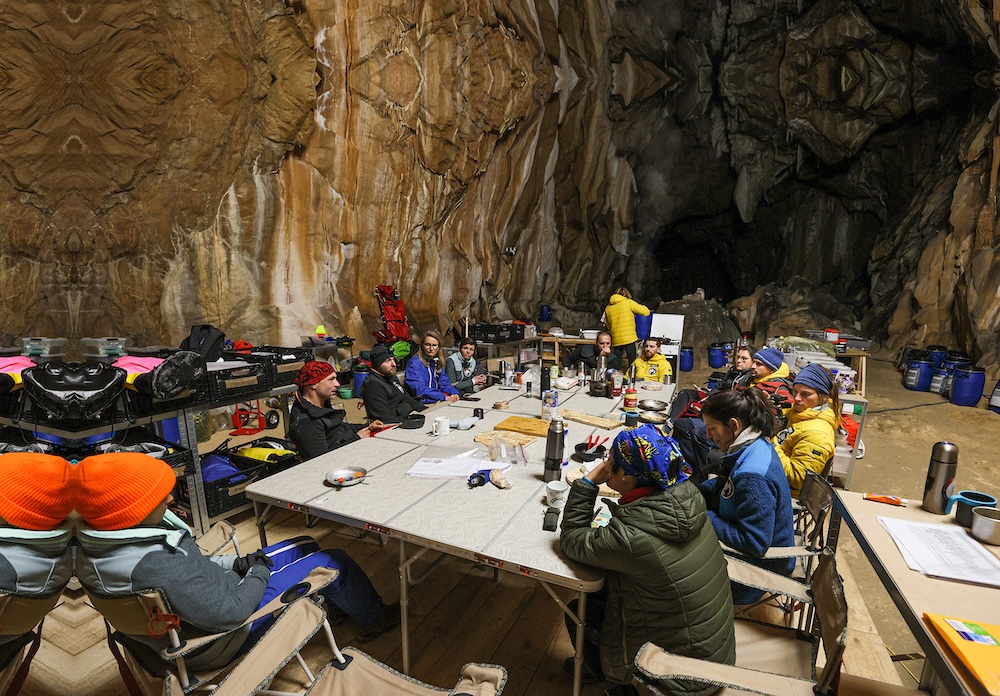
What about our emotions? How do they affect our ability to react to an extreme environment?
This is an extremely complex subject, as the amount of work on this issue remains limited today. It isn't easy to measure emotion even though we are beginning to understand certain things, and in particular that our decisions are well-headed by feeling.
Emotions are of several kinds. On one hand, all feelings of structural sensations arise through the senses. The individual generally tries to rationalise them as much as possible to be able to use them wisely. On the other hand, we experience projection-perception emotions like fear, pleasure, and wonder. They are mighty and impact the structural construction of the new apprehension of the world that one experiences. Indeed, when one needs to restore hope in a difficult situation to feel able to act, an emotion of the "wonder" type will be much more effective in building a future than an emotion of fear, which will potentially lock the person into a mode of withdrawal or rejection.
To be able to stabilise in a new system and make efficient decisions, we need the capacity for future projection. If we lose this ability, we start seeing a whole cognitive decline. This was the case during the Covid lockdowns for many people. In France, around 40% of the population lost this interest to project themselves into the future. There was a need to find a solution. Still, since many individuals no longer had a future mental projection, they clung to the first solution presented, necessarily simplistic, such as the development of conspiracy. It is important to break this mechanism and regain the capacity for projection, which only comes with positive emotions like wonder.
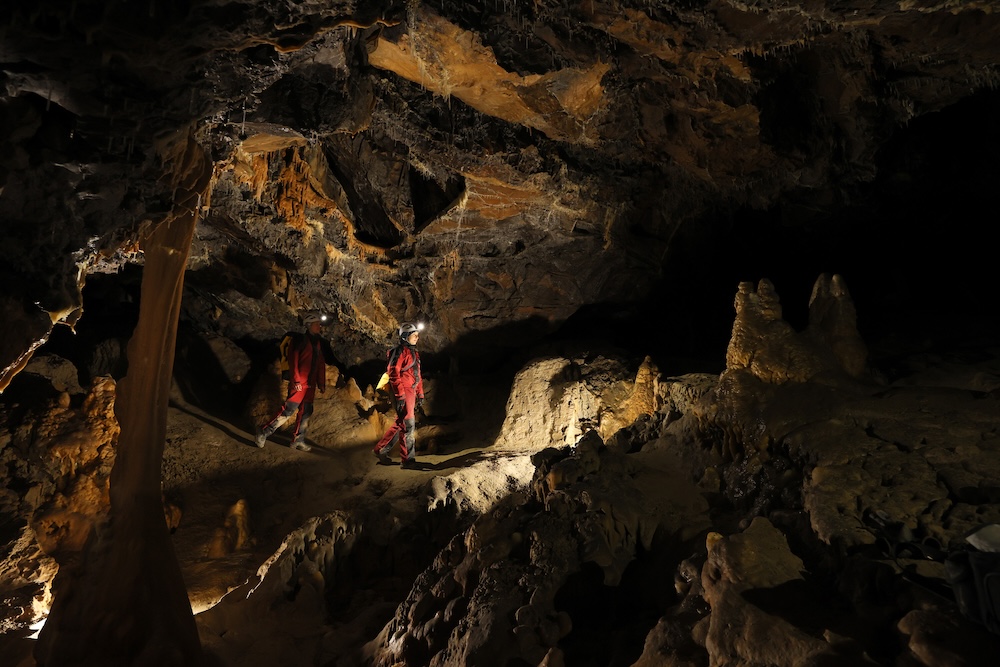
‘To be able to stabilise in a new system and therefore make efficient decisions, you need to be able to project into the future. If we lose this ability, we start to see a whole cognitive fall.’
This is something you have experienced during your expeditions...
Yes, I have personally experienced it several times. To tell you the truth, I am still alive for two reasons: acceptance and wonder. The acceptance of fear first. It helps to use your fears as a learning tool. It is a warning signal that must be understood and allows you to work on the potential danger. Fear should not be understood as a blockage.
And, of course, wonder. A sense of wonder resolves each challenge in an expedition: Suddenly a cloud in the sky pleases me,
a magnificent animal passes over the ice, or I finally manage to achieve a goal that I had set myself, like reaching a summit... But it can also be an imaginary one. If I have been stuck in my tent for days, I generate a state of wonder by imagining a situation I would like to be in or a person I could be with.
From the delighted sighting of a tiny insect to the joy of climbing Mt. Everest, from the most tenuous to the most awe-inspiring, wonder can be everywhere. An essential job is to look for what gives us these moments of pleasure. This approach is of course difficult when losing energy and facing major challenges.
By emphasising the loss of control and vulnerability, you challenge this myth of the “superman” and our dominating relationship with nature that is often associated in the collective imagination with adventurers like you...
Sure. Experienced old explorers are well beyond feeling strong ! Nature far exceeds all human competence, and we must consider this. The ability to accept is essential. Humans are fragile, poorly adapted to most environments on Earth and weak in the face of extreme situations. We are not those water bears, the tardigrades, who resist everything!
The collective competence of humans has always allowed us to overcome challenges together more than the capacities of an individual, however strong they may be. Take the human genius in Iran, which made it possible to build the entire Yazd in an absolute desert, where the population manages to live in temperatures that are much more bearable than the 50°C of the neighbouring desert.
Thus, you call for a necessary “cognitive paradigm shift in order to live in harmony with our environment and not in opposition to it. »...
Yes. Our Western societies have largely disconnected from the territorial reality of the environment. Our bodily and cognitive systems have been weakened. It is no longer necessary to thermo-regulate; heating and air conditioning have been invented. Technological systems have been substituted for physiological functions to such an extent that we have lost a detailed understanding of our environment.
This was quite observable in the “Deeptime” experiment, for example. When waking up, without any technological indication of what time it was, people had to solicit forgotten bodily functions to situate themselves in time.
Overall, to regain a better understanding of the environment that we must protect, it is crucial to restore this relationship with nature. It is a priority today, and it fundamentally questions the revegetation of cities, schools, and the ability of humans to spend time in nature... In short, we have completely lost all these things in Western society.
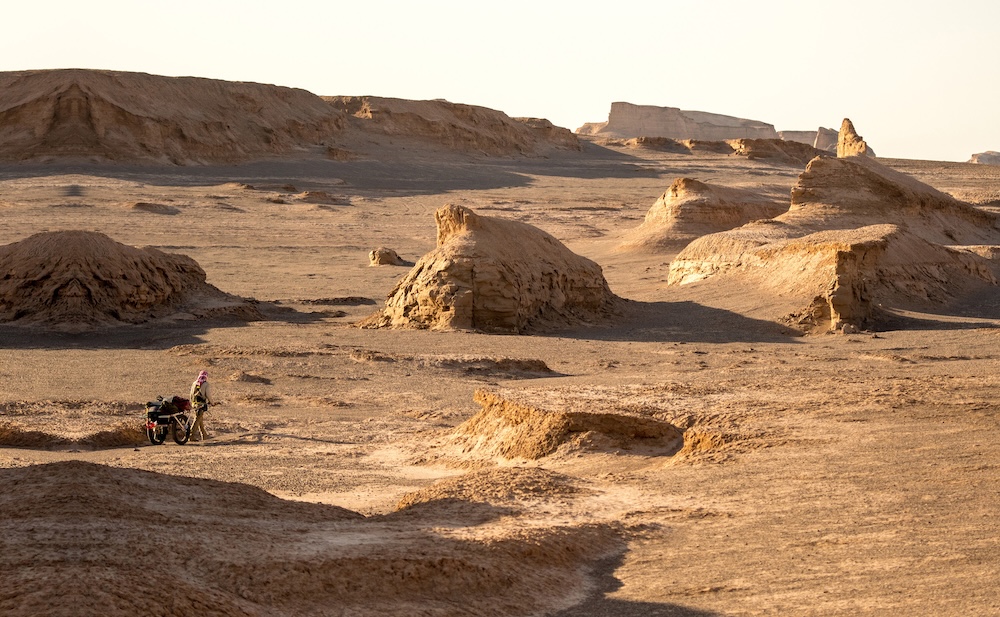
Your work is particularly prevailing with the occurrence of extreme climatic events and other major crises and shifts. We talk a lot about resilience; you prefer the term adaptation. Could you explain this?
There is one certainty: as long as we talk about resilience - and only resilience - we wait for a crisis to pass, to then adapt to the new situation a posteriori. This means that we expect tragedy to happen.
I think that we must work today on anticipatory adaptation, the ability to brace ourselves and transform before an event, in order to minimise the potential impact they may have on us. When the event occurs, we will have already implemented the first steps that will allow us to move faster in adjusting to new conditions and finding solutions.
Today, unfortunately, we are still always in reaction first, then resilience. It is ultimately the easiest for our brain because it eliminates the notion of choice. At the Institute, we are working on repositioning anticipatory adaptation as a lever for future construction so that we no longer make resilience the solution. Resilience can allow an individual to experience
a past event less badly, but it will not enable a community to build its future. It is now a question of not waiting for the crisis.
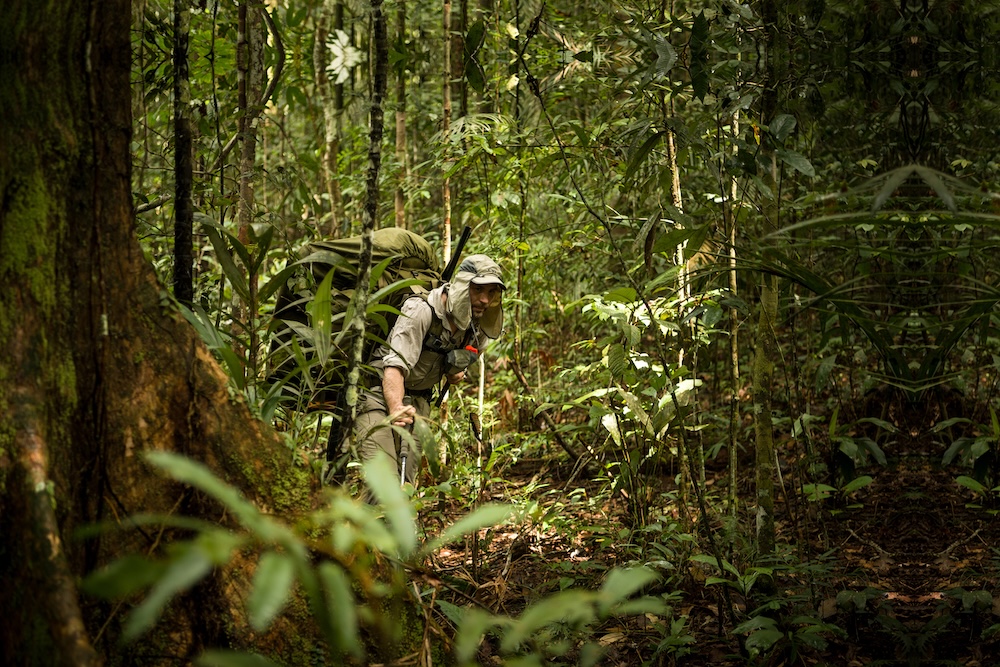
You also walk with migrants, populations that are by definition the most confronted with change. What did you learn from them?
What requires more changes than someone who has to leave everything that has made up their life to try to settle in a new territory with unfamiliar language, habits and customs and in which one is not necessarily welcome? Imagine the migrants leaving Guatemala, Honduras or El Salvador for Texas! They must cross tropical forests, face the mafia, and the police, go days without eating... How do they manage, despite all obstacles, to make this apprently impossible journey? The arrival in the new territory is also very instructive, with all the mental effort that implies accepting and adapting to it.
Undoubtedly, living with migrant people teaches us the most about adaptive mechanics because they are the people that, despite what we often hear, are ultra-adaptive and call forth exceptional skills when given the opportunity. We now know millions of people will migrate in the near future because of climate change, so it is essential to fundamentally ask
the question of what it means to migrate.
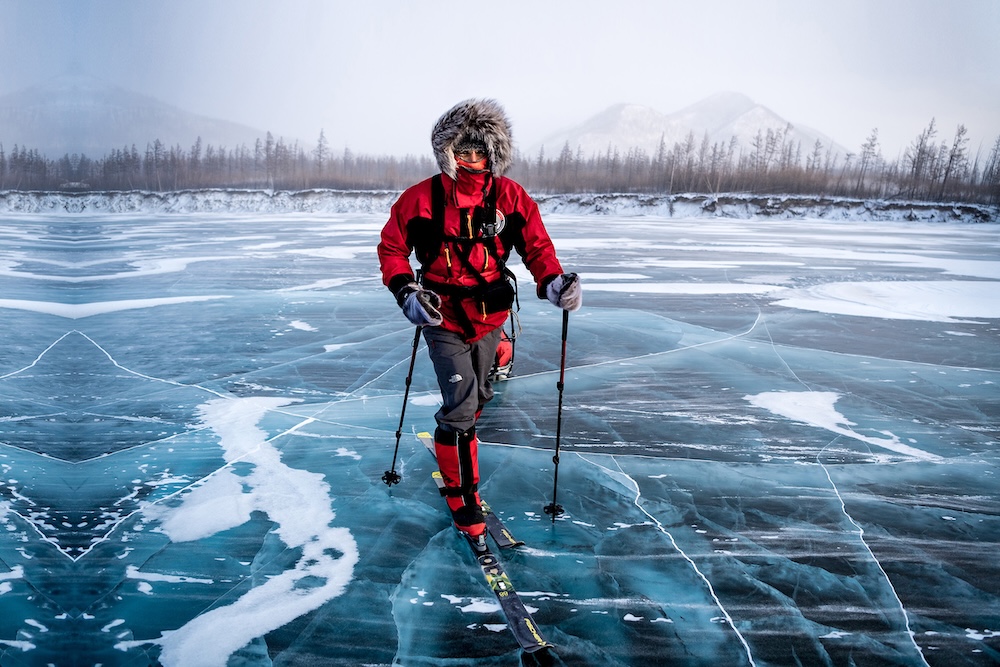
What's your next adventure?
By next summer, we will take a team of 20 people from temperate backgrounds, ten women and ten men, to several hostile climatic environments. We will analyse not one, but several brains this time, especially the group dynamics facing crises and so-called extreme environments. Actually, we need to acknowledge that these extremes will be our temperatures in 30 years in Europe, hence the interest in studying the question!
If there was one idea to remember, what are we missing to find the solutions for tomorrow?
Changing education systems to change behaviours. Today, apart from a few exceptions, no country has understood the need for education linked to the new conditions of life. Yet human beings have extraordinary resources. They are able
to adapt.
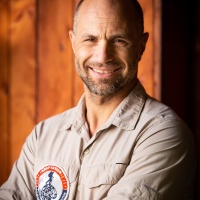
Christian Clot
For more than twenty years, Christian Clot, a Franco-Swiss explorer-researcher, has devoted himself to exploration and scientific research. He has set and led expeditions in all land and sea landscapes. He has been directing the Human Adaptation Institute since 2015 to study human capacities for cognitive and physiological adaptation in real-life situations. The explorer is also the author of several books and films and vice-president of the Society of French Explorers (SEF).